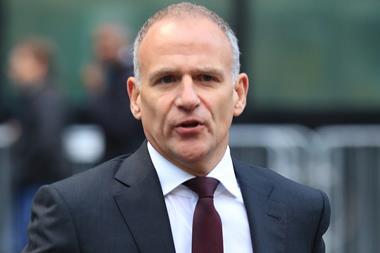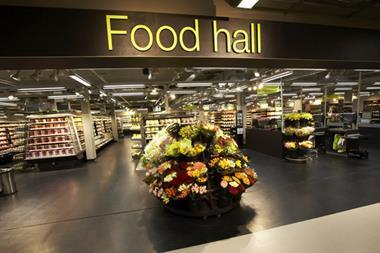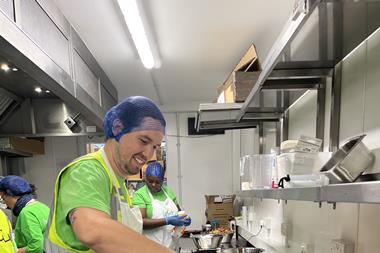
Groceries Code Adjudicator Mark White has launched a probe into tactics being deployed by supermarkets to fend off inflation requests from suppliers.
Describing the issue as the “key concern” facing suppliers, White said that whilst commercial decisions on prices were not strictly an issue for the GCA, it would seek to intervene if supermarkets were seen to have overstepped the mark in subsequent delisting of products.
White has asked suppliers to come forward with their experience of asking supermarkets to agree price increases, as he prepares to launch the GCA’s annual YouGov survey on Monday.
The survey asks suppliers to come forward with examples of “refusal to consider a cost price increase” or “unreasonable delay in agreeing or in implementing an agreed CPI”.
“Clearly this is a huge issue for the sector and many of the designated retailers I oversee are clearly facing strong demands from suppliers for cost increases,” he told The Grocer.
“That in itself is a commercial matter, but if as a result of that pressure and the scale of those requests there are code issues, then I want to know about them.
“The natural consequence of retailers refusing to pay cost increases is delisting and I really have to make sure these delistings are code-compliant.”
White raised concerns in his survey last year that the inexperience of many supermarket buyers was a potential factor in alleged code breaches, and he said this was particularly a factor with the surge in inflation following a decade of deflation in food prices.
“I suspect there are many buyers who have never even seen CPI requests before,” he said. “And even those that have, have never seen this volume.”
Sources have told The Grocer many supermarket buyers have been refusing to grant price increases where products are pegged in price to the discounters and White said this was an area that had been raised.
The adjudicator said at this stage he was not planning formal guidance, but indicated he would look to come up with a guide for best practice for supermarkets. He also urged suppliers to work more closely with supermarket code compliance officers to raise any issues.
He said: “I can’t overestimate the importance of suppliers responding to the survey. It’s a great opportunity to raise issues early in the year. Last year it enabled me to work with suppliers and retailers on some issues regarding delisting and the inexperience of buyers, and I’m hoping this year it will be equally helpful.”
The Adjudicator’s intervention comes after Tesco boss Ken Murphy this week vowed to work collaboratively with suppliers to keep down prices, after the supermarket admitted it faced inflationary pressure of around 5% in the next year.
After Tesco upgraded its profit forecast to a whopping £2.6bn following strong third quarter and Christmas results today, CEO Murphy denied Tesco was cashing in while those in the supply chain face unprecedented pressures due to Covid and commodity price increases.
Murphy said Tesco’s suppliers had “stepped up magnificently” to the challenges of the pandemic, adding that it was committed to “long-term relationships with suppliers”.
Asked how suppliers would react to such huge profit projections, which follow an upgraded forecast by Sainsbury’s yesterday of at least £720m, Murphy told The Grocer: “Particularly in the past five years of the partnership we have built a reputation for building partnerships with our suppliers.
“They have helped us and we have helped them at every stage of the pandemic.”
In November The Grocer revealed how supermarket buyers were using increasingly onerous justification processes to delay and thwart supplier cost price hikes, according to claims by negotiations experts.
Justification forms were described as “unprecedented in their complexity” asking for rigorous breakdowns for individual ingredients, packaging, storage and transportation, as well as manufacturing and labour overheads and profits margins.



















No comments yet